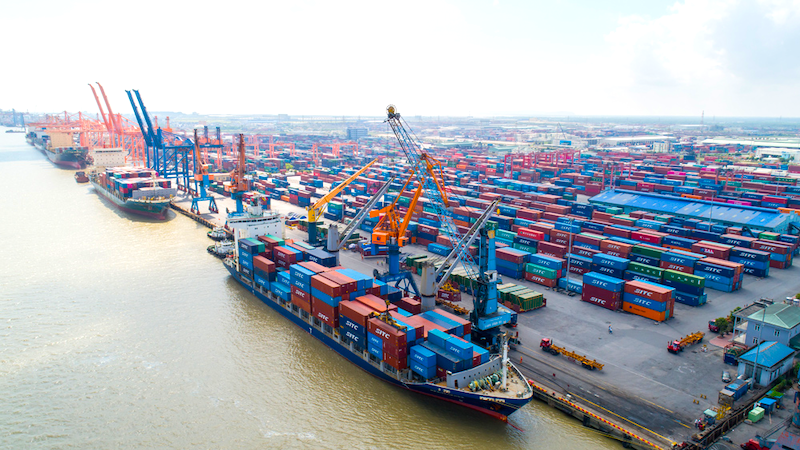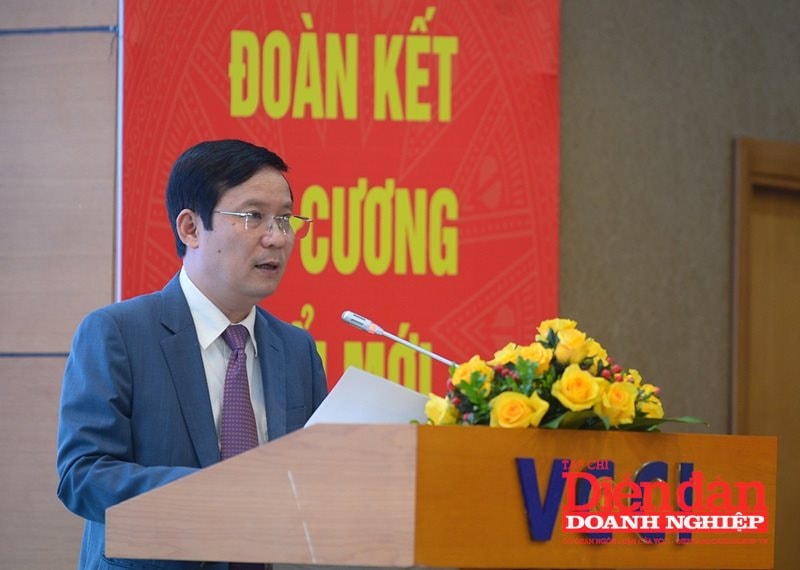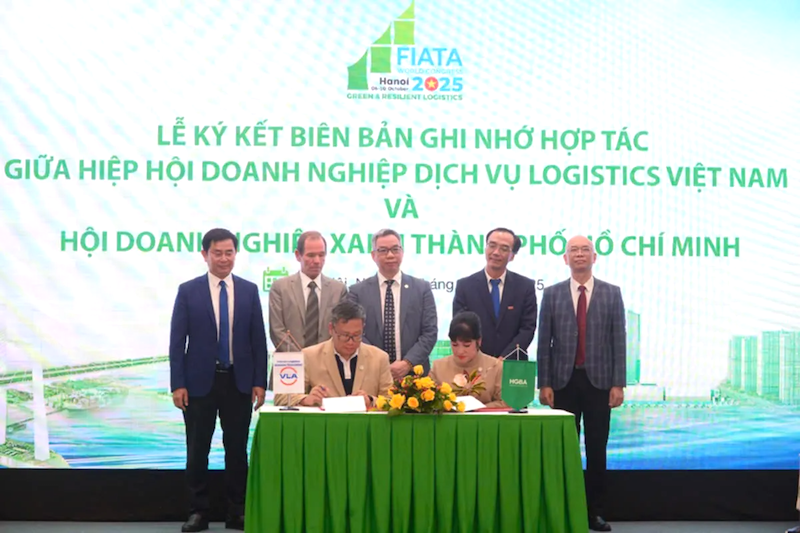Green logistics becomes a must for Vietnamese firms
Experts have called for greater policy dialogue, technology transfer and investment collaboration to enable Vietnamese logistics companies to implement green transformations effectively.
Green logistics is strategic for Vietnamese businesses to remain competitive in an increasingly volatile global economy.
This was the key message of the 'Green Logistics: Momentum Amidst Volatility' forum held in Hanoi on July 11, where experts emphasized that sustainable practices are vital for survival and integration.

Dinh Vu Port in the northern city of Haiphong. Photo: dinhvuport.com.vn
The forum is a pivotal event ahead of the FIATA World Congress 2025, set to take place in Vietnam for the first time this October.
Pham Tan Cong, Chairman of the Vietnam Confederation of Commerce and Industry (VCCI), stated that global standards such as ESG, Net Zero, and carbon border taxes force companies to undertake a green transformation.
He cited a VCCI survey showing that international buyers now demand green practices at all stages of the supply chain, including design, operations, purchasing, logistics, and waste management.

VCCI President Pham Tan Cong addressed the event
Dao Trong Khoa, Chairman of the Vietnam Logistics Business Association (VLA), concurred, noting that the transition to green logistics is now mandatory for Vietnamese companies to integrate more deeply into global value chains and improve their competitiveness.
He added while major foreign-invested firms are adopting green logistics, most small and medium-sized enterprises face high costs, limited information and weak policy support.
Meanwhile, legal frameworks supporting green logistics remain limited and lack coordination among agencies although Vietnam has introduced circular economy strategies, green growth, and green transport infrastructure bills.

Signing ceremony of a memorandum of understanding between VLA and Ho Chi Minh City Green Business Association at the forum. Photo: Khac Kien/The Hanoi Times
Tran Thanh Hai, Deputy Director General of the Import-Export Department at the Ministry of Industry and Trade, emphasized the importance of adopting renewable energy sources such as hydrogen and LNG for freight transport, and encouraged shifting to larger-capacity waterway and railway systems.
He also called for improved operational efficiency through smart warehousing and reducing empty returns.
To support sustainable business transitions, VCCI has developed the Corporate Sustainability Index (CSI) to help companies assess their performance, identify areas for improvement and attract investment.
Yap Kwong Weng, CEO of Vietnam SuperPort, reiterated the importance of promoting integrated multimodal logistics models.
His company is developing a logistics complex in Vietnam that will connect air cargo terminals, bonded warehouses and cross-border infrastructure. He believes this could give Vietnam a structural advantage in the regional supply chain.








